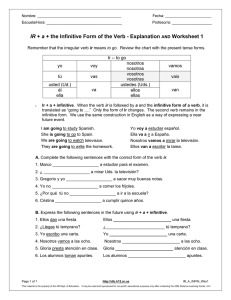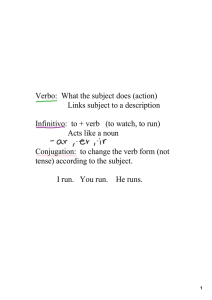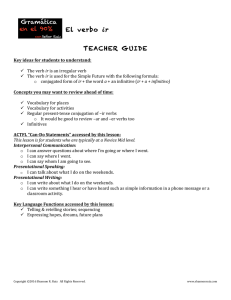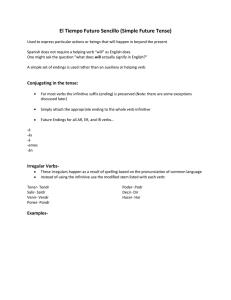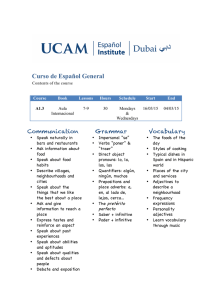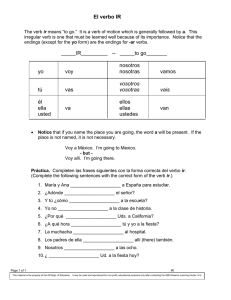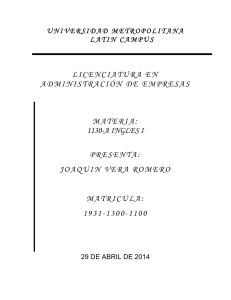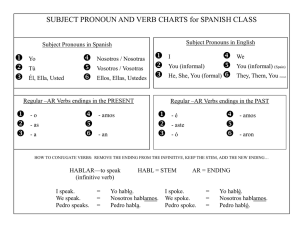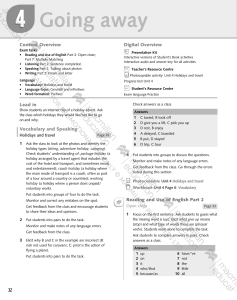IR + a + the Infinitive Form of the Verb _____IR_________
Anuncio
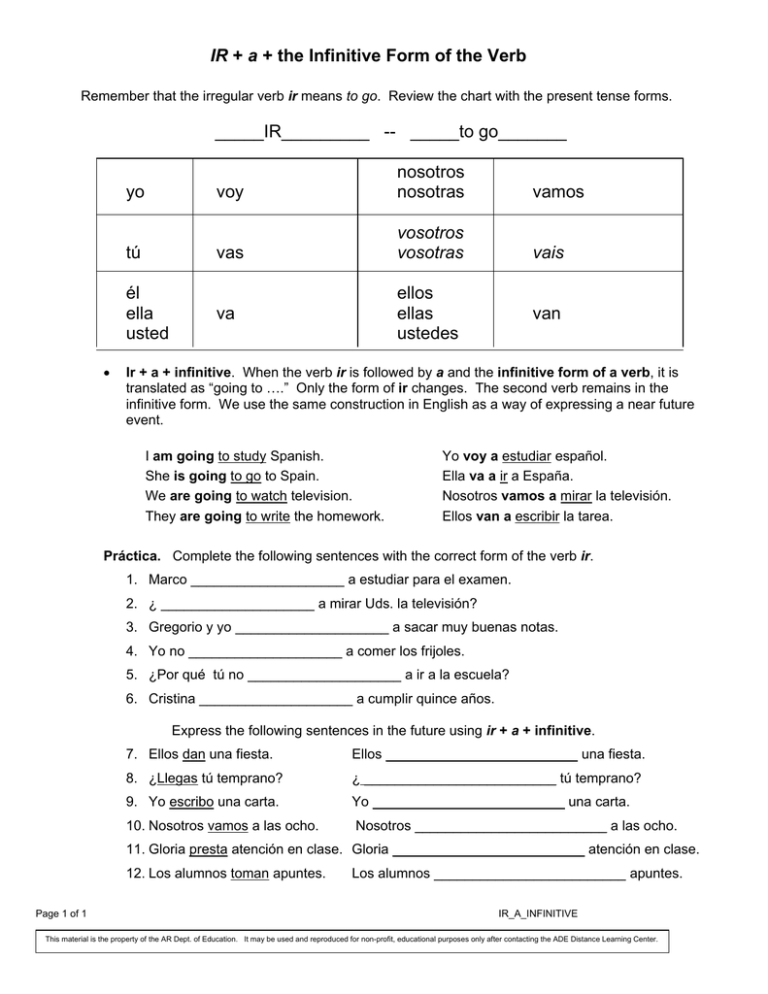
IR + a + the Infinitive Form of the Verb Remember that the irregular verb ir means to go. Review the chart with the present tense forms. _____IR_________ -- _____to go_______ yo tú él ella usted • voy nosotros nosotras vamos vas vosotros vosotras vais ellos ellas ustedes va van Ir + a + infinitive. When the verb ir is followed by a and the infinitive form of a verb, it is translated as “going to ….” Only the form of ir changes. The second verb remains in the infinitive form. We use the same construction in English as a way of expressing a near future event. I am going to study Spanish. She is going to go to Spain. We are going to watch television. They are going to write the homework. Yo voy a estudiar español. Ella va a ir a España. Nosotros vamos a mirar la televisión. Ellos van a escribir la tarea. Práctica. Complete the following sentences with the correct form of the verb ir. 1. Marco ____________________ a estudiar para el examen. 2. ¿ ____________________ a mirar Uds. la televisión? 3. Gregorio y yo ____________________ a sacar muy buenas notas. 4. Yo no ____________________ a comer los frijoles. 5. ¿Por qué tú no ____________________ a ir a la escuela? 6. Cristina ____________________ a cumplir quince años. Express the following sentences in the future using ir + a + infinitive. 7. Ellos dan una fiesta. Ellos _________________________ una fiesta. 8. ¿Llegas tú temprano? ¿ _________________________ tú temprano? 9. Yo escribo una carta. Yo _________________________ una carta. 10. Nosotros vamos a las ocho. Nosotros _________________________ a las ocho. 11. Gloria presta atención en clase. Gloria _________________________ atención en clase. 12. Los alumnos toman apuntes. Page 1 of 1 Los alumnos _________________________ apuntes. IR_A_INFINITIVE This material is the property of the AR Dept. of Education. It may be used and reproduced for non-profit, educational purposes only after contacting the ADE Distance Learning Center.
